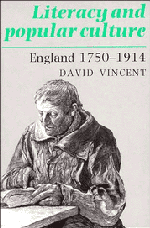Summary
The Life and Opinions of Thomas Preston, Patriot and Shoemaker; containing much that is useful, more that is true, and A great deal more, (perhaps), than is EXPECTED! provides a succinct account of the awakening of its author's political consciousness in the 1790s. Preston was set on the road which was to take him through Spencean radicalism to a trial for High Treason following the 1816 Spa Fields riots by the destruction of his belief in the necessity of the established order:
The increase of reading had dissipated the delusion, and people now knew the meaning of words, whether spoken in the Senate, wrote in a lawyer's bill of costs, or printed on an impress warrant. The charm of Ignorance which had so long lulled my mind into a comparative indifference at the people's wrongs, was now beginning to disappear.
He was able to use the skills picked up during a ‘contracted’ education to engage in an ultimately far-reaching critique of the language which clothed and protected the distribution of power. The impact of the new forms of communication on old forms of authority has been widely observed. ‘Democracy as we know it’, write Goody and Watt, ‘is from the beginning associated with widespread literacy.’ Reading and writing promote political participation. Those who have been to school or who have educated themselves are able to demystify authoritarian regimes and gain access to the information upon which the effective exercise of their newly won rights depends.
- Type
- Chapter
- Information
- Literacy and Popular CultureEngland 1750–1914, pp. 228 - 269Publisher: Cambridge University PressPrint publication year: 1989

